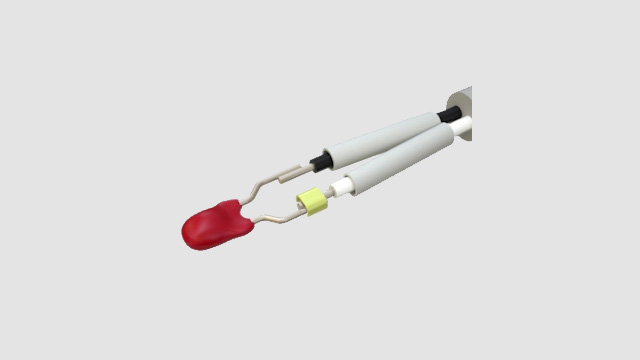
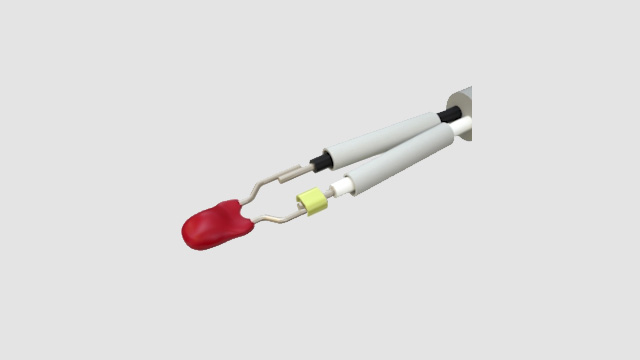
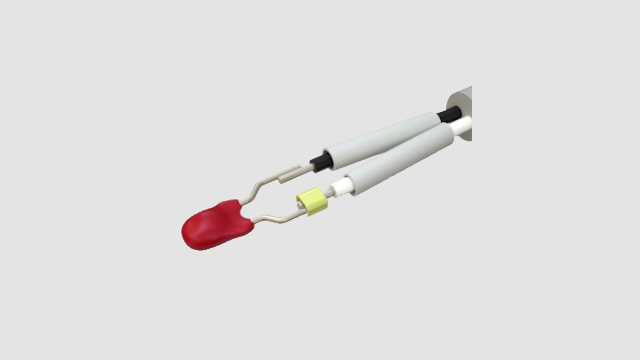
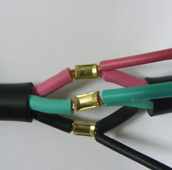

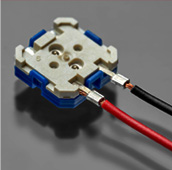

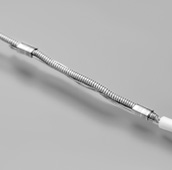

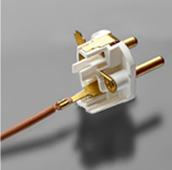

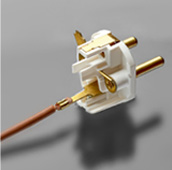

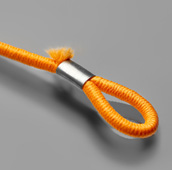

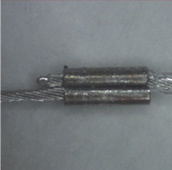

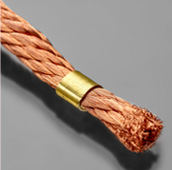

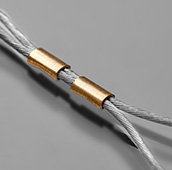

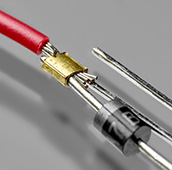

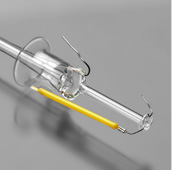

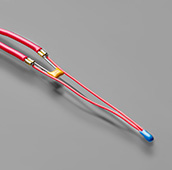



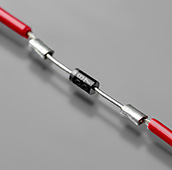

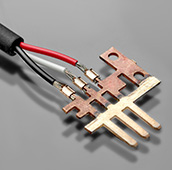

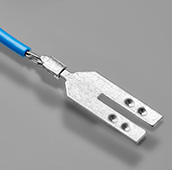

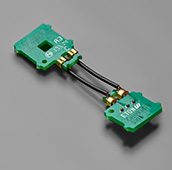

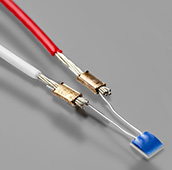

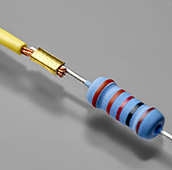

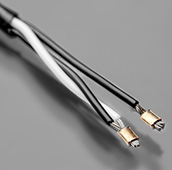

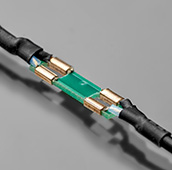



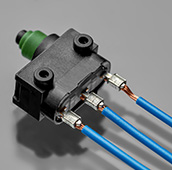

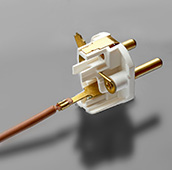

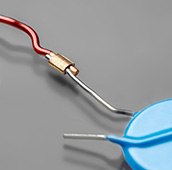

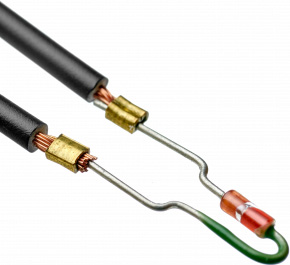

Splicing as a mechanical process allows getting reproducible high quality. With the same tooling and splice band the quality of a product stays the same from cycle to cycle.

Tooling is designed individually for each product so that the splice fits perfectly the components and form reliable connection.

The deformation of the components and the splice during the splicing process guarantees gastight connection.

Connection and tooling engineering guarantees stable low electrical resistance preventing loose strands, misaligned connection and other defects.

Splice crimping doesn’t involve heating unlike soldering, thus it keeps components out of burning or melting risks and guarantees good behavior under deformation and vibrations.

Splice allows to make compact and constant size connection with minimum dimensions such as 0.46*0.24 mm cross-section connection for an artificial cardiac pacemaker. Space saving feature is ideal for sensors, bulbs, heating elements, etc.

Splice connection can be performed with various types of components (PCBs, wires, coils, sensors, plastic connectors, filament, etc.), materials (fiber, Teflon, chrome, steel, etc.) and size.

Splice allows to make compact and constant size connection with minimum dimensions such as 0.46*0.24 mm cross-section connection for an artificial cardiac pacemaker. Space saving feature is ideal for sensors, bulbs, heating elements, etc.

Thanks to automation it’s possible to make up to 2000 splices per hour without any experience in splicing.

Splice spare parts are cheaper than ones for welding and soldering and it need to be changed rarely: each 300 000 – 3 000 000 assemblies depending on spares and components type.
 +86- 20-3992 0957
+86- 20-3992 0957
info@smcontact.cn
www.smcontact.cn



